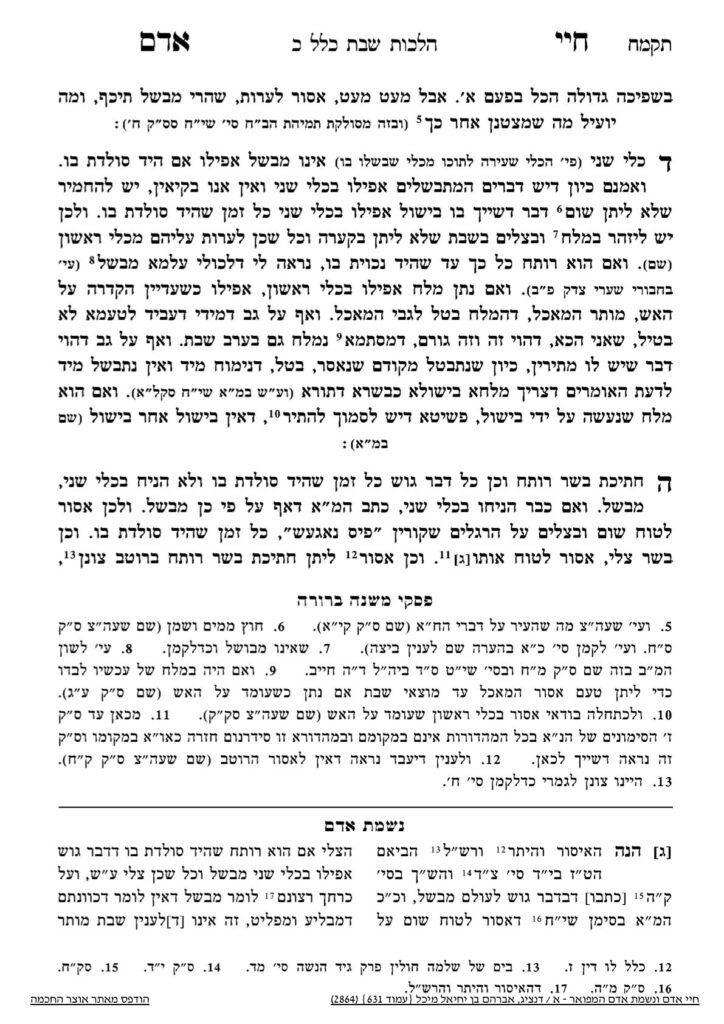We are continuing in siman 4. The Chayei Adam is now going to address a few points which we will discuss outside of the text.
The Chayei Adam discusses the issue of maaseh Shabbos in regards to cooking salt. To review, if a person performs melacha on Shabbos, Chazal prohibit benefit from the outcome of the melacha on Shabbos. There is a machlokes in the Gemara regarding the extent of the issur. According to Rav Yehuda, if the melacha is performed b’shogeig, it is assur for everyone to benefit from the melacha on Shabbos itself, but anyone can benefit after Shabbos. If the melacha is performed b’meizid, it is assur to others on Shabbos itself, but muttar to others after Shabbos. It is assur for the person themselves to benefit from the melacha forever. Rav Meir holds that if the melacha was performed b’shogeig, everyone can benefit from the melacha, including the person who performed it. If the melacha was performed b’meizid, it is assur until after Shabbos, and then it is muttar to everyone. The Shulchan Aruch paskens in accordance with Rav Yehuda, while the Gra paskens in accordance with Rav Meir.
The Chayei Adam’s discussion regards salt. There are three considerations of bitul which he mentions:
- Chazal have a general rule that something used for flavor is not batel.
- On the other hand, we have a concept of zeh v’zeh goreim, that when two things are equally powering something, it is harder to determine if there is an issur.
- The concept that kol davar she’yeish lo matirin, afilu b’elef lo batel, if something will eventually (realistically) become muttar, one should not be mevatel it, but rather wait until it is muttar. Thus, the salt which will become muttar after Shabbos should not be batel.
- There are many considerations to consider before applying davar she’yeish lo matirin. For example, since the food remains assur to the person who did the issur forever, maybe it is never considered davar she’yeish lo matirin.
- We pasken that maaseh Shabbos b’shogeig is assur to all during Shabbos and muttar to all after Shabbos. Maaseh Shabbos b’meizid is assur to others during Shabbos and muttar to others after Shabbos, and assur to the person who performed the melacha forever.
- If a person adds salt to a food on Shabbos, there is an issue that something added for flavor does not become batel. On the other hand, there is a heter of zeh v’zeh goreim, so it is not a concern. There is an additional issue of davar sheyesh lo matirin, which we will discuss in the upcoming shiur.



